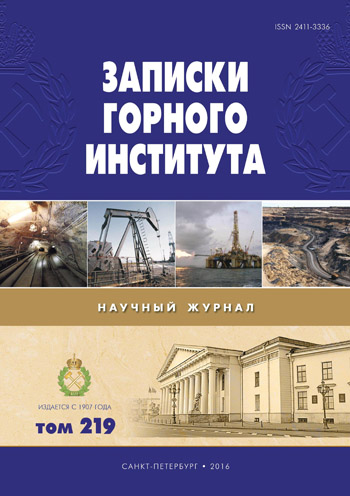Theory and practice of modern scientific dialogue in technical higher educational institution
- Ph.D., Dr.Sci. professor Saint-Petersburg Mining University
Abstract
Theory of scientific dialogue is being depicted in the light of dialogue conception of M.M.Bakhtin, dialogue socialization law reliance on in teacher’s practical activity is being understood as an essential condition of common cultural and professional growth of an individual. Rhetoric strategies and tactics which heighten dialoguing effectiveness in educational-scientific community usage necessity is being substantiated. Depending on subject matter, status and list of participants, condition of the meeting, genre the aims of scientific dialogue are being determined as following: world picture formation/correction; scientific laws, principles, methods formulation; actual problems and topical issues in some certain brunch of science monitoring; scientific conclusions, regulations, conceptions verification; opposite point of view, position, opinion agreement with or disagreement; scientific facts, opinions, approaches estimation. Scientific dialogue classification in application to cultural-educational environment of technical higher educational institution is defined more exactly. The idea that skills to conduct scientific dialogue are demanded during training communication and further scientific-professional activity of a higher technical educational institution graduates is being proved.
References
- Bakhtin M.M. Estetica slovesnogo tvorchestva (Aesthetics of the wordy creation). Moscow: Iskusstvo, 1979. 424 p.
- Vereshchagin E.M., Kostomarov V.G. Yazyk i kultura (Language and culture). Moscow: Russkiy yazyk, 1990. 246 p.
- Diogen Laertskiy. O zhizni, ucheniyah i izrecheniyah znamenityh filosofov (About life, studies and statements of prominent
- philosophers). Moscow: Mysl, 1986, p.150-190.
- Lomonosov M.V. O dolzhnosty zhurnalistov v izlozhenii imi sochineniy, naznachennyh dlia podderzhaniya svobody sochi
- neniy. (About journalist’s obligation in narrative by them of works composed with a purpose to maintain compositions freedom) URL: http://vivovoco.rsl.ru/VV/MISC/4/LOMONOSOV.HTM (Data obrashcheniya: 15.10.2015).
- Potebnya A.A. Mysl i yazyk. Psihologiya poeticheskogo i prozaicheskogo myshleniya (Idea and language. Poetical and prosaic thinking psychology). Moscow: Labirint, 2010, 240 p.
- Rozhdestvenskij Yu.V. Teoriya ritoriki (Theory of rhetoric). Moscow: Flinta, Nauka, 2006. 512 p.
- Shvedova N.Yu. K izucheniyu russkoj dialogicheskoj rechi. Repliki-povtory (Some ideas about Russian dialogical speech studying. Remarks-retries). Voprosy yazykoznaniya. 1956. N 2, p.67-82.
- Todorov Т. М.M.Bakhtine: Le principe dialogique. Paris: Editions du Seuil, 1981. 297 p.
- Trager G., Hall E. Culture as Communication: A Model and Analysis. Explorations: Studies in Culture and Communication (3). New York, 1954, p.137-149.
